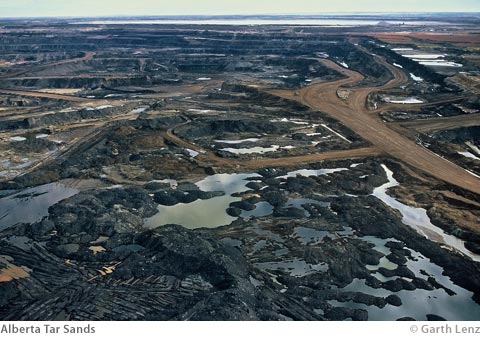The Alberta government released its Lower Athabasca Regional Plan (LARP) today extolling the province’s efforts to protect lands from industrial development – except it turns out the claims more closely resemble greenwash than fact. Not only are the areas set aside for protection much smaller than originally recommended by the province’s Regional Advisory Council, but they also appear to have been chosen for their total lack of potential value to the oil and gas or commercial forestry industries.
In fact, 85 percent of the newly protected areas lack any commercially viable oil, gas and timber. The areas set aside for conservation are largely located in the rocky north of the province, and are not representative of the rich forest ecosystems found in the southern Athabasca region – the lands impacted the most by industrial timber and tar sands exploitation.
While the government claims 16.17 percent of the lands are newly protected conservation areas, in fact only 10.6 percent are truly protected. The remaining 5.57 percent of the conservation areas allow “ecosystem forestry,” a greenwashing term for business as usual that allows industrial logging on these ‘protected’ lands.
The LARP [PDF] does little to protect caribou habitat, failing to protect a single entire range, meaning all herds could face habitat challenges from industrial development.
Greenpeace Climate and Energy Campaigner Mike Hudema slammed the LARP report following a press conference this afternoon, stating that the Alberta government is “allowing dirty oil profits to trump the public interest” and “can’t be trusted to protect the land, water or people of the tar sands region.”
“In fact, this government gave industry even more than was asked for. It’s like giving a three-year-old an entire pie after they ask for a piece,” Hudema said.
While the Globe and Mail notes that the land use plan may be used to revoke a small number of oil sands leases – perhaps impacting the holdings of companies like Cenovus Energy and Koch Industries’ subsidiary Koch Exploration Canada – it is unclear at this point whether the government will follow through.
Given the intense lobbying efforts of Koch Industries – which set up new lobbying shops in Canada recently to protect its stake in the dirty tar sands – the Alberta government will face enormous pressure to lay off the industry.
And the outlook isn’t great. So far, it seems the Alberta government is more concerned with protecting industrial polluters and extraction interests than the health of Albertans and their environment. The government’s official press release praises the plan’s benefits to economic growth, a classic indicator of the province’s failure to understand the fundamental principal that the economy is a wholly owned subsidiary of the environment.
Photo Credit: Garth Lenz
Subscribe to our newsletter
Stay up to date with DeSmog news and alerts







